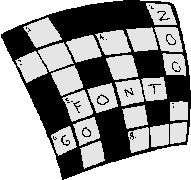|
LIFE SCIENCE |
Chapter 3 Vocabulary
____________________ – movement of substances through a cell membrane without the use of cellular energy; includes diffusion, osmosis, and facilitated diffusion
____________________ – a type of protein that regulates nearly all chemical reactions in cells; a type of protein that speeds up chemical reactions in the body without being changed or used up itself
____________________ – a type of passive transport in cells in which molecules move from areas where there are more of them to areas where there are fewer of them
____________________ – the total of all chemical reactions in an organism
____________________ – occurs when molecules of one substance are spread evenly throughout another substance
____________________ – compounds that always contain hydrogen and carbon; carbohydrates, lipids, proteins, and nucleic acid are organic compound found in living things.
____________________ – process by which vesicles release their contents outside the cell
____________________ – process by which producers and consumers release stored energy from food molecules; series of chemical reactions used to release energy stored in food molecules
____________________ – energy requiring process in which transport proteins bind with particles and move them through a cell membrane
____________________ – a type of passive transport that occurs when water diffuse through a cell membrane
____________________ – a combination of substances in which the individual substances do not change or combine chemically but instead retain their own individual properties; can be gases, solids, liquids, or an combination of them
____________________ – compound, such as H2O that is made from elements other than carbon and whose atoms usually can be arranged in only one structure
____________________ – process by which a cell takes in a substance by surrounding it with the cell membrane
____________________ – process by which plants and many other producers use light energy to produce a simple sugar from carbon dioxide and water and give off oxygen
____________________ – process by which oxygen- lacking cells and some one-celled organisms release small amounts of energy from glucose molecules and produce wastes such as alcohol, carbon dioxide, and lactic acid
